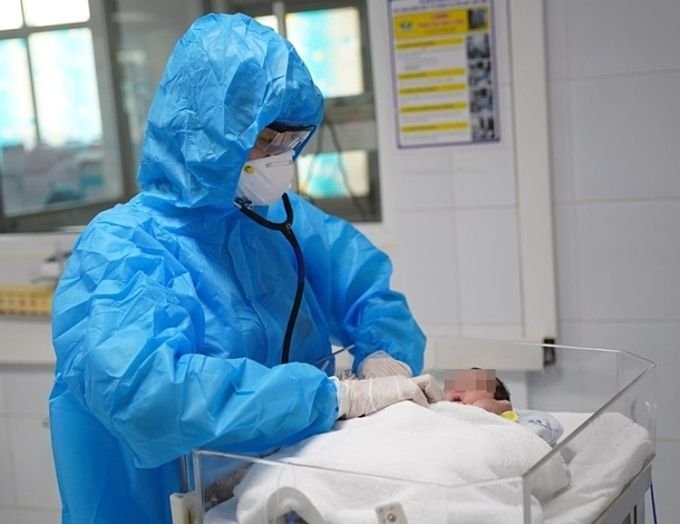
Nutrition for F0 children treated at home 10
According to the Nutrition Guidelines for people with Covid-19 at home, from the Ministry of Health, people with Covid-19 often lose their sense of taste or smell and reduce their ability to eat.
General principles of nutrition for people with mild Covid-19 and no symptoms include: eat normally with adequate and balanced nutrient groups with a variety of foods (if possible) to
Add 1-2 extra meals such as milk and dairy products, especially when you eat less due to fever, cough, fatigue… Eat more protein-rich foods (meat, lean fish, beans, nuts, etc.)
Parents need to periodically monitor their children’s nutritional status by weight and food intake.
Every day, children must eat at least 5 out of 8 food groups, including: starch group, milk and milk products group, fat group, vegetable group, meat and fish group, egg group, nuts group,
Provide enough water, especially fresh fruit juice, avoid drinking industrial soft drinks.
In case the child has poor appetite or does not eat enough as recommended, oral nutritional support with high energy density (1Kcal/ml) must be given as a complete or partial replacement for regular formula milk.
Avoid eating too many sweets and eating too salty foods.
Parents need to monitor their child’s nutritional status periodically every 3-5 days to determine if the child is likely to suffer from severe acute malnutrition.
Assess daily gastrointestinal symptoms such as anorexia, diarrhea, nausea, vomiting, and abdominal pain because they will reduce food intake and absorption, and monitor the amount of food your child eats each day.
A baby with Covid-19 was treated at the National Children’s Hospital.
Besides nutrition, what you need to do to support and care for your child with Covid-19 is to confide in, reassure your child, answer questions and share practical information about the disease.
Parents need to guide children on daily actions to reduce the spread of pathogens such as: washing hands regularly;
Thuy Quynh



